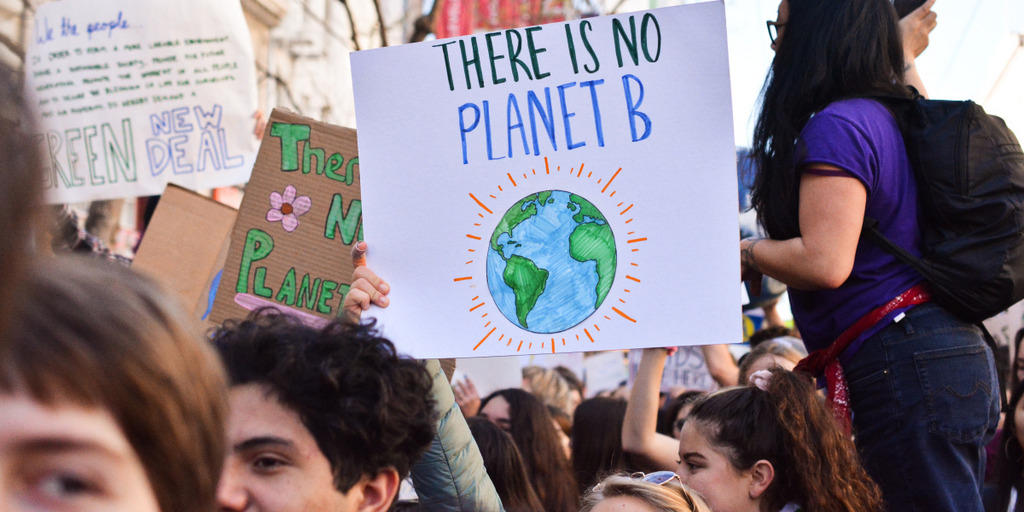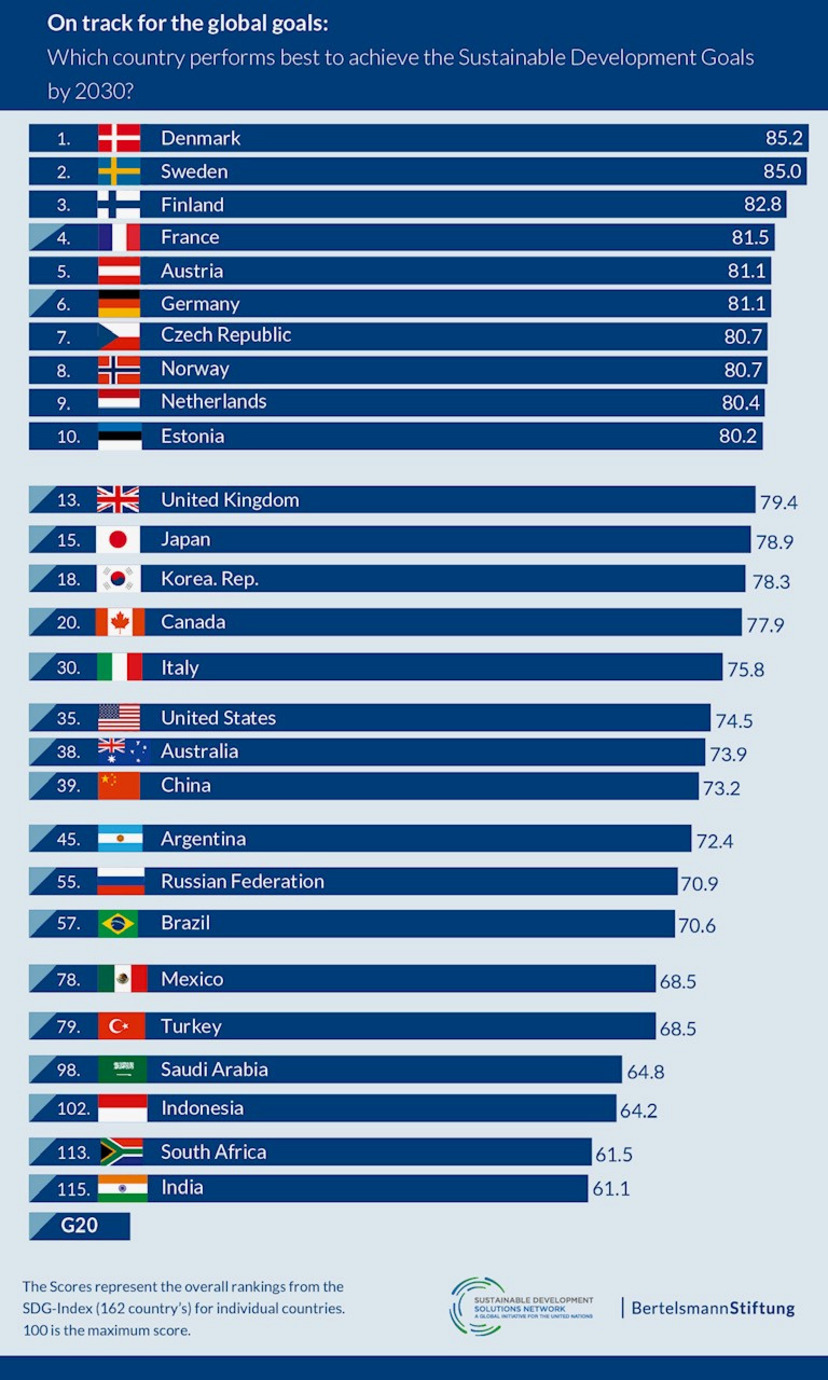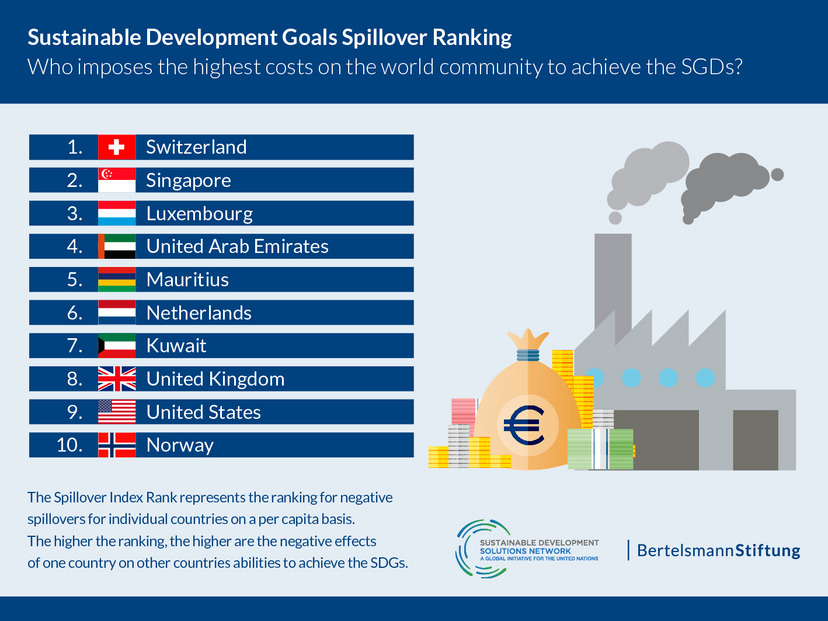What began as a historic summit could end up as mere lip service. In 2015, 193 states agreed to implement the 17 UN Sustainable Development Goals by 2030. The fight against poverty and hunger is just as important as the commitment to more climate protection or better educational opportunities. This year, the heads of state and government want to meet for the first time for an interim review in New York. The results should be sobering: The latest edition of the SDG Report* shows that no country is currently on track to meet all targets by 2030.
The industrialized countries play an ambivalent role in their implementation. On the one hand, they come closest to fulfilling the goals. On the other hand, they hinder global implementation by incurring environmental and economic costs for third countries due to high living standards and consumer preferences. These are the findings of the current Sustainable Development Report, based upon which we and the Sustainable Development Solutions Network (SDSN) have been analyzing the implementation of the UN goals since 2015.






